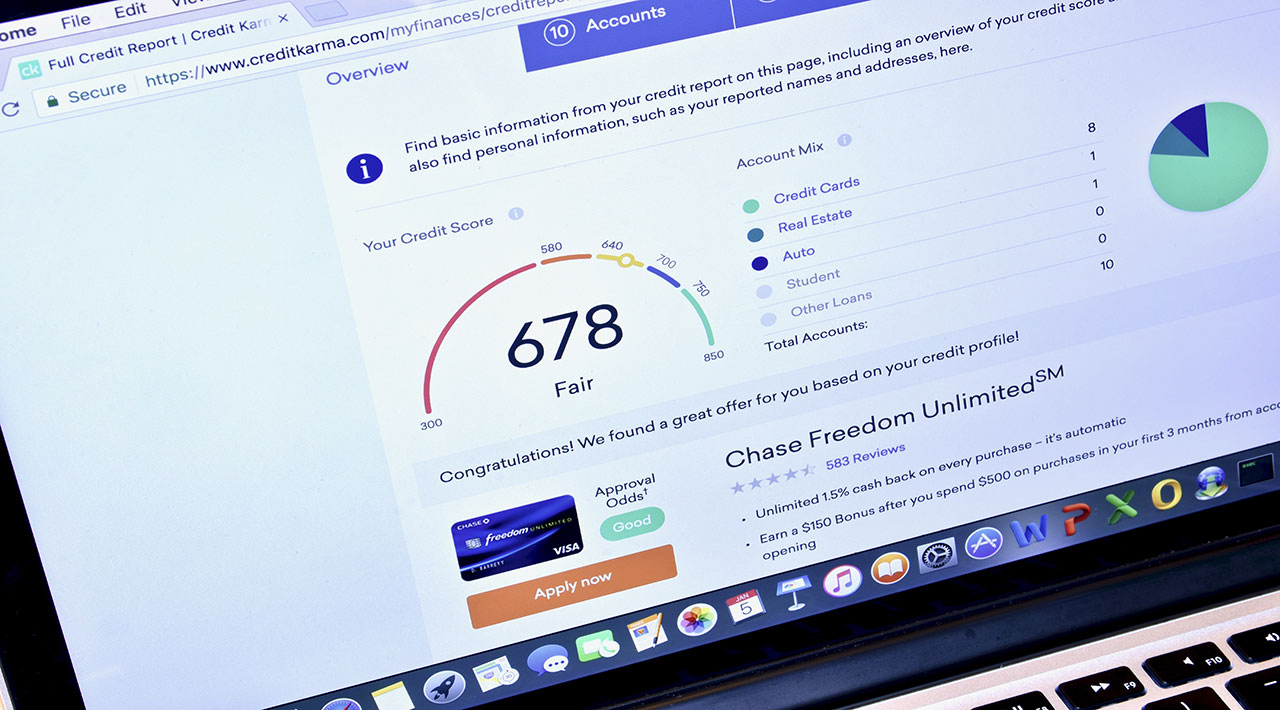Home>Finance>Why Do You Have To Pay A Credit Card Minimum Payment


Finance
Why Do You Have To Pay A Credit Card Minimum Payment
Published: February 27, 2024
Learn why it's important to pay at least the minimum amount on your credit card each month to avoid penalties and protect your financial health. Explore the impact on your credit score and overall financial well-being.
(Many of the links in this article redirect to a specific reviewed product. Your purchase of these products through affiliate links helps to generate commission for LiveWell, at no extra cost. Learn more)
Table of Contents
- Understanding the Importance of Credit Card Minimum Payments
- Understanding the Basics of Minimum Payments
- The Rationale Behind Minimum Payment Mandates
- Understanding the Ramifications of Non-Compliance with Minimum Payment Obligations
- Practical Strategies for Effectively Handling Minimum Payment Obligations
- Navigating Credit Card Minimum Payments: A Path to Financial Empowerment
Introduction
Understanding the Importance of Credit Card Minimum Payments
Credit cards have become an integral part of modern financial transactions, offering convenience and flexibility in managing expenses. However, the convenience of credit cards comes with the responsibility of making timely payments. One crucial aspect of credit card payments is the minimum payment requirement. Understanding the significance of minimum payments is essential for maintaining financial stability and avoiding potential pitfalls associated with credit card debt.
When individuals use credit cards for purchases or to cover unforeseen expenses, they enter into an agreement with the card issuer to repay the borrowed amount within a specified time frame. Failing to meet the minimum payment requirement can lead to various consequences, including financial penalties and damage to one's credit score. Therefore, comprehending the rationale behind minimum payments and the implications of neglecting them is vital for responsible credit card management. In this article, we will delve into the concept of minimum payments, explore the reasons why credit card companies mandate them, and provide insights into managing minimum payments effectively.
What is a Minimum Payment?
Understanding the Basics of Minimum Payments
A credit card minimum payment is the lowest amount that a cardholder must pay by the due date to keep the account in good standing. This figure is typically calculated as a percentage of the outstanding balance, often ranging from 1% to 3% of the total amount owed. Additionally, the minimum payment may include any fees and accrued interest, further contributing to the overall payment obligation.
While making the minimum payment ensures that the account remains current and prevents immediate penalties, it is important to note that carrying a balance forward by paying only the minimum can result in long-term financial strain. This is due to the accumulation of interest on the remaining balance, potentially leading to a cycle of debt if not managed prudently.
Understanding the dynamics of minimum payments is crucial for cardholders, as it sheds light on the implications of maintaining a revolving balance and the associated costs over time. By grasping the concept of minimum payments, individuals can make informed decisions about their credit card usage and payment strategies, ultimately contributing to their overall financial well-being.
Why Do Credit Card Companies Require a Minimum Payment?
The Rationale Behind Minimum Payment Mandates
Credit card companies impose a minimum payment requirement to ensure that cardholders fulfill their financial obligations and maintain the active status of their accounts. By stipulating a minimum payment, issuers aim to facilitate consistent repayment and mitigate the risk of delinquency, which could result in financial losses for the company. Additionally, the minimum payment serves as a mechanism to cover a portion of the outstanding balance and associated interest, thereby preventing the accumulation of excessive debt over time.
From the perspective of the card issuer, requiring a minimum payment fosters a balance between accommodating cardholders’ varying financial capacities and safeguarding the company’s interests. This approach allows individuals to manage their cash flow while upholding their commitment to repay the borrowed funds. Moreover, by setting a minimum payment threshold, credit card companies promote responsible credit usage and discourage prolonged reliance on revolving credit, which can lead to substantial interest accrual and financial strain for cardholders.
Furthermore, the imposition of a minimum payment aligns with regulatory guidelines and industry best practices, ensuring that card issuers act in accordance with established standards for fair and transparent lending. By mandating a minimum payment, credit card companies adhere to regulatory frameworks while providing cardholders with a structured framework for managing their credit card obligations.
Overall, the requirement for a minimum payment reflects the dual objective of empowering cardholders to manage their finances effectively and safeguarding the financial interests of credit card companies. Understanding the rationale behind minimum payments enables individuals to approach their credit card usage with greater awareness and make informed decisions regarding their payment strategies.
Consequences of Not Paying the Minimum Payment
Understanding the Ramifications of Non-Compliance with Minimum Payment Obligations
Failure to meet the minimum payment requirement on a credit card can lead to a cascade of adverse consequences that impact the cardholder’s financial well-being and credit standing. One immediate repercussion of non-payment or insufficient payment is the imposition of late fees and penalties by the card issuer. These additional charges exacerbate the financial burden, potentially escalating the overall debt owed.
Moreover, non-payment or partial payment of the minimum amount can trigger an increase in the cardholder’s interest rate, leading to higher finance charges on the outstanding balance. This, in turn, contributes to a cycle of escalating debt and prolonged repayment periods, impeding the individual’s efforts to achieve financial stability.
Beyond the immediate financial implications, neglecting the minimum payment requirement can have a detrimental impact on the cardholder’s credit score. Payment history is a significant factor in credit scoring models, and delinquency in meeting minimum payment obligations can result in a lowered credit score. A diminished credit score may hinder the individual’s ability to access favorable loan terms, secure housing, or obtain competitive interest rates on future credit products.
Furthermore, persistent non-compliance with minimum payments can lead to the initiation of collection procedures by the credit card company, potentially culminating in legal actions and adverse entries on the cardholder’s credit report. These long-term repercussions can significantly impair the individual’s financial standing and limit their access to essential financial services.
By comprehending the potential consequences of not meeting minimum payment obligations, cardholders can proactively manage their credit card accounts and prioritize timely payments to mitigate the risk of financial penalties, credit score deterioration, and enduring financial repercussions.
Tips for Managing Minimum Payments
Practical Strategies for Effectively Handling Minimum Payment Obligations
Managing credit card minimum payments requires a proactive approach to financial responsibility and prudent budgeting. By implementing the following tips, cardholders can navigate their minimum payment obligations with greater efficacy and mitigate the risk of adverse financial consequences:
- Regular Monitoring: Stay vigilant about monitoring credit card statements and payment due dates to ensure timely action. Leveraging digital reminders or automated payment services can aid in staying organized and prompt in meeting minimum payment requirements.
- Strategic Budgeting: Allocate funds specifically for credit card payments within the overall budget, prioritizing the settlement of at least the minimum required amount each month. Consider adjusting discretionary spending to accommodate the payment obligations.
- Payment Optimization: Whenever feasible, strive to pay more than the minimum amount to expedite the reduction of the outstanding balance and minimize interest accrual. Even modest additional payments can yield long-term savings on interest costs.
- Debt Repayment Planning: Develop a structured plan for reducing credit card debt, focusing on addressing higher-interest balances first while consistently meeting minimum payment requirements across all accounts.
- Financial Communication: In cases of financial hardship or unforeseen challenges, communicate proactively with credit card issuers to explore potential assistance programs or temporary relief options, thereby averting potential non-compliance with minimum payments.
- Continuous Learning: Enhance financial literacy by seeking out resources and educational materials that provide insights into effective debt management, credit utilization, and prudent payment strategies.
By implementing these practical tips, individuals can navigate the complexities of minimum payments with greater confidence and ensure that their credit card obligations are managed proactively, contributing to sustained financial well-being and responsible credit usage.
Conclusion
Navigating Credit Card Minimum Payments: A Path to Financial Empowerment
Understanding the dynamics of credit card minimum payments is fundamental to fostering responsible financial management and mitigating the potential pitfalls associated with credit card debt. By comprehending the significance of minimum payments and the implications of non-compliance, individuals can approach their credit card obligations with clarity and foresight, thereby safeguarding their financial well-being and credit standing.
While credit card companies mandate minimum payments to promote consistent repayment and responsible credit usage, cardholders play a pivotal role in managing their payment obligations effectively. By proactively monitoring payment due dates, strategizing budget allocation, and seeking opportunities to expedite debt reduction, individuals can navigate their minimum payment requirements with confidence and prudence.
Furthermore, continuous education and proactive communication with credit card issuers enable individuals to address financial challenges and unforeseen circumstances, fostering a collaborative approach to managing credit card obligations. By embracing financial literacy and implementing practical strategies for handling minimum payments, individuals can fortify their financial resilience and pave the way for sustained financial empowerment.
In essence, the conscientious management of credit card minimum payments is an integral component of sound financial stewardship, enabling individuals to navigate their credit obligations with prudence, foresight, and resilience. By adhering to best practices, leveraging financial resources, and prioritizing timely payments, cardholders can cultivate a robust financial foundation and pursue their financial aspirations with confidence and clarity.














